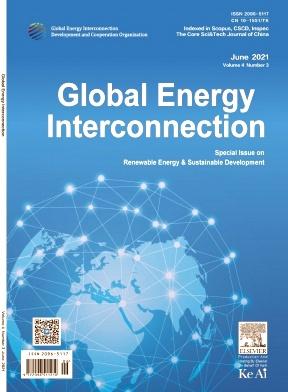Peer-to-peer transaction with voltage management strategy in distribution network considering trading risk
IF 2.6
Q4 ENERGY & FUELS
引用次数: 0
Abstract
P2P trading is driving the decentralization of the electricity market, the autonomy and privacy requirements of prosumers may introduce safety risks such as voltage violations. Existing security management methods based on price guidance may face unsolvable situations in trading scenarios and have difficulty assessing the impact of P2P transactions on voltage security. To this end, this paper proposes a novel distribution system operator (DSO)-prosumers bi-level optimization framework incorporating the dynamic operating envelope (DOE) and risk coefficient-based network usage charge (RC-NUC). In the upper-level, the DOE is employed for dynamic voltage management to prevent violations while the RC-NUC further guides prosumers to engage in grid-friendly transactions. The lower-level decentralized market enables prosumers to optimize trading decisions autonomously. Only price signals and energy quantities are exchanged between the two levels, ensuring the privacy of both parties. Additionally, an alternating direction method of multipliers (ADMM) with adaptive penalty factor is introduced to improve computational efficiency. Case studies on a modified IEEE 33-bus system demonstrate that the proposed method reduces voltage violation risks by 18.31% and enhances trading efficiency by 32.3%. These results highlight the feasibility and effectiveness of the approach in advancing secure and efficient distributed energy transactions.
考虑交易风险的配电网电压管理策略点对点交易
P2P交易正在推动电力市场的去中心化,产消者的自主性和隐私性要求可能会带来电压违规等安全风险。现有的基于价格指导的安全管理方法在交易场景中存在不可解的情况,难以评估P2P交易对电压安全的影响。为此,本文提出了一个包含动态运行包络(DOE)和基于风险系数的网络使用费(RC-NUC)的配电系统运营商-产消两级优化框架。在上层,美国能源部被用于动态电压管理,以防止违规,而RC-NUC进一步引导产消者参与电网友好型交易。较低级别的去中心化市场使产消者能够自主优化交易决策。两级之间仅交换价格信号和能源数量,保证了双方的隐私。此外,为了提高计算效率,引入了一种具有自适应惩罚因子的交替方向乘法器方法。在改进的IEEE 33总线系统上的实例研究表明,该方法将电压违例风险降低了18.31%,交易效率提高了32.3%。这些结果突出了该方法在推进安全高效的分布式能源交易方面的可行性和有效性。
本文章由计算机程序翻译,如有差异,请以英文原文为准。
求助全文
约1分钟内获得全文
求助全文
来源期刊

Global Energy Interconnection
Engineering-Automotive Engineering
CiteScore
5.70
自引率
0.00%
发文量
985
审稿时长
15 weeks
 求助内容:
求助内容: 应助结果提醒方式:
应助结果提醒方式:


